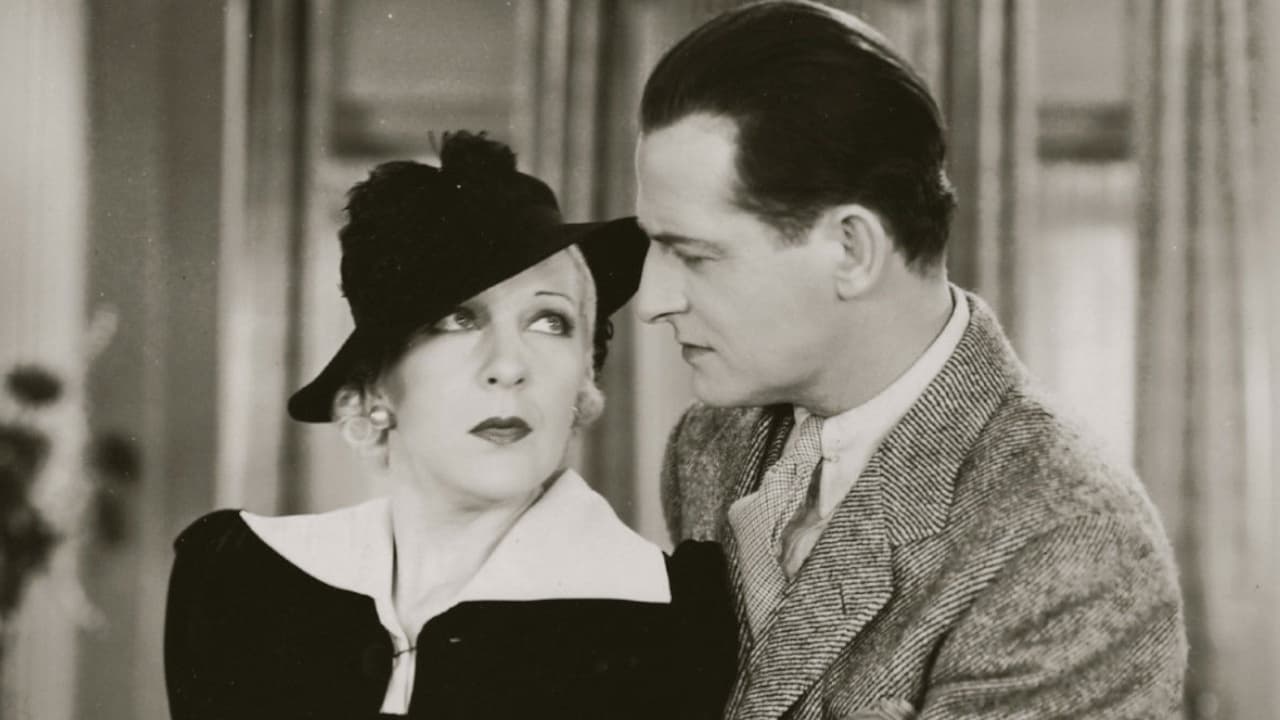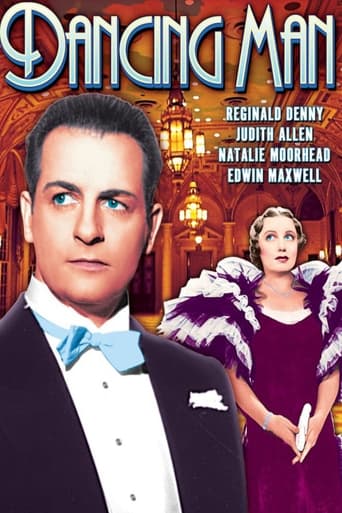Aedonerre
I gave this film a 9 out of 10, because it was exactly what I expected it to be.
Fairaher
The film makes a home in your brain and the only cure is to see it again.
Burkettonhe
This is ultimately a movie about the very bad things that can happen when we don't address our unease, when we just try to brush it off, whether that's to fit in or to preserve our self-image.
Clarissa Mora
The tone of this movie is interesting -- the stakes are both dramatic and high, but it's balanced with a lot of fun, tongue and cheek dialogue.
mark.waltz
Roseanne Barr once said in an early stand-up routine that God created gay men so fat women would have somebody to dance with. OK, so the man dancing here with some old, overweight socialites isn't really gay, it's still the same premise. After all, in "Wonder Bar" the very same year, an obvious gigolo gets rid of his female dance partner to dance with another man. For professional escort Reginald Denny, his clients are a combination of older, desperate social matrons and a very bored society wife (Natalie Moorhead), married to the much older but wealthy Edmund Breese. When Denny dumps Moorhead, she is upset to overhear her stepdaughter Judith Allen planning a date with him, and cruelly informs her of her own involvement with him, convincing Allen to dump him. When Moorhead is suddenly found dead, mystery erupts and the suspects are galore! While the list of suspects in Moorhead's murder are many, each of their relationships with her are explained in detail, making her character the most fascinating in the film. This is one of the more above average "B" films from the poverty row studios, briskly paced and well thought out. Moorhead's demise only some 25 minutes into the film deprives the viewer of her imperious presence; She truly remains one of the great forgotten vamps of the silver screen and one who deserves more than just a passing mention in film history. Allen gets some great dramatic moments too, and Breese is outstanding as Moorhead's elderly husband, especially in a scene where he has to both mourn her and deal with the truth about her character and many infidelities. This is a film that leaves very little to the imagination of what the society matrons want from the gigolos (and it is certainly more than dancing) and rises above even some of the longer, better crafted "A" films which used style over substance. "Dancing Man" gets straight to the point, and never lets up until the final denouncement.
JohnHowardReid
Director/screenplay: Albert Ray. Based on the novel by Julia Poynter. Photography: James S. Brown, Jr. Film editor: Dan Milner. Art director: Edward C. Jewell. Music supervisor: Abe Meyer. Production manager: Leigh Smith. Sound recording engineer: Terry Kellum. Producer: Rose Judell Reisman.Copyright 23 February 1934 by Pyramid Productions, Inc. U.S. release: 23 February 1934. New York opening at the Cameo: 15 July 1934. Los Angeles opening: 12 July 1934. 8 reels. 64 minutes.COMMENT: To my delighted surprise, this unpromising Alpha DVD release – which I assumed to be some boring romance/comedy – turned out to be a murder mystery. It moves at a reasonably fast pace and the culprit came as a genuine surprise, thanks to the solid acting by the player concerned and trim direction by the normally abysmally lackluster Albert Ray. Good old Reg Denny is miscast in the title role but he gives it his best shot. Edmund Breese, also somewhat miscast, also tends to out-stay his welcome, but Judith Allen and especially Natalie Moorhead make "Dancing Man" well work viewing.

